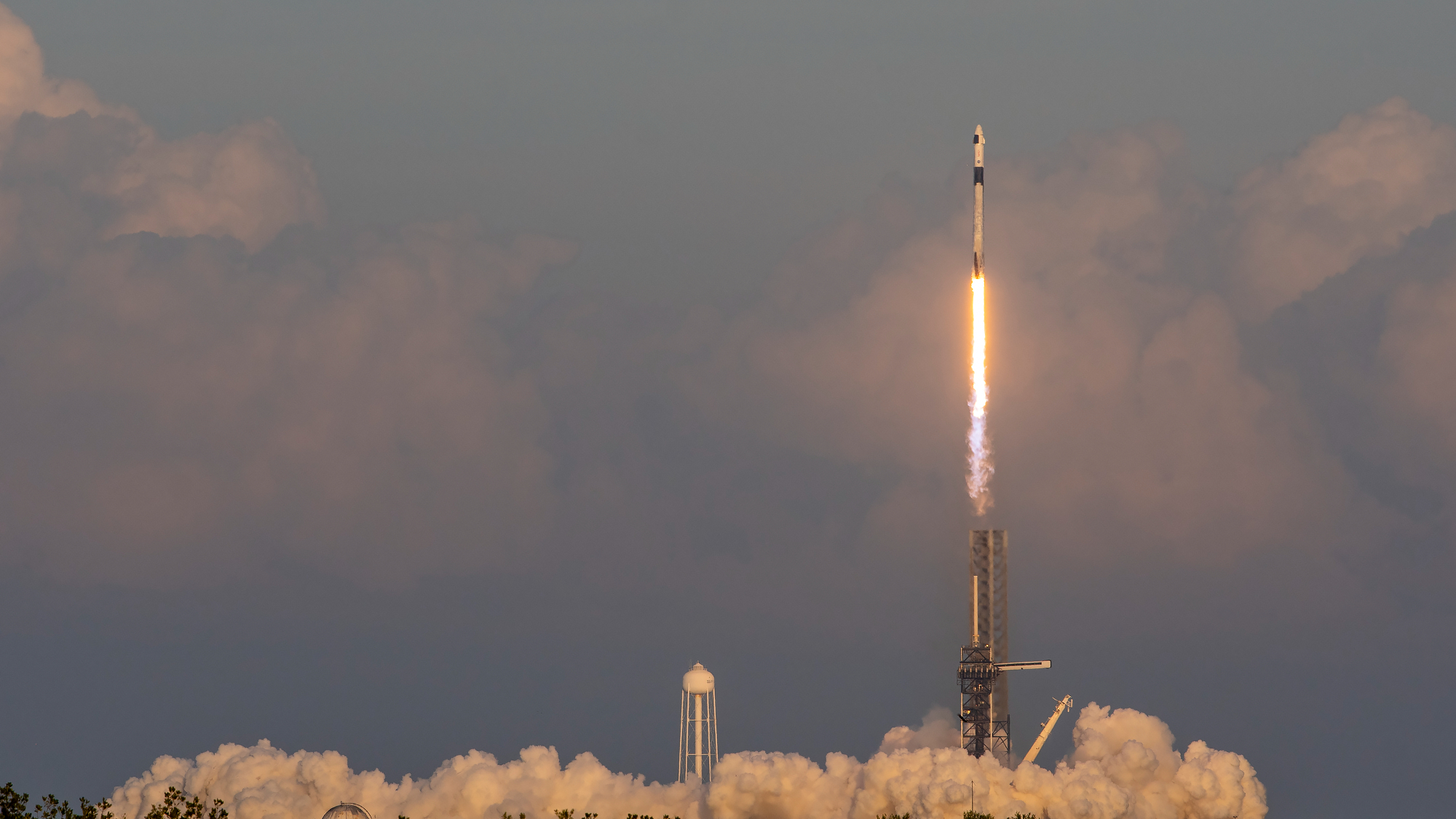Russia launched its second mission in a three-day stretch on Wednesday (Oct. 12), sending a communications satellite aloft for the government of Angola.
A Proton rocket topped with the Angosat-2 spacecraft lifted off from the Russian-run Baikonur Cosmodrome in Kazakhstan Wednesday at 11 a.m. EDT (1500 GMT; 6 p.m. Moscow time).
Angosat-2 is bound for geostationary orbit, about 22,250 miles (35,800 kilometers) above Earth, where it will provide communications services for the Angolan government for at least 15 years, if all goes according to plan.
Related: The history of rockets

Angosat-2 was built by the Russian satellite-manufacturing company ISS Reshetnev, with Airbus providing the communications payload, according to RussianSpaceWeb.com. The satellite is a replacement for Angosat-1, which failed shortly after launching to Earth orbit in 2017.
Angosat-2 has faced problems of its own. For example, its liftoff was delayed by the coronavirus pandemic and economic sanctions imposed on Russia, which held up the development and delivery, respectively, of key satellite components, RussianSpaceWeb reported. And then came the Russian invasion of Ukraine, which began on Feb. 24.
In the wake of the invasion, which is ongoing, "Airbus stopped the delivery of 57 waveguides and related documentation for the deployable antennas operating in Ku- and C-band," RussianSpaceWeb.com's Anatoly Zak wrote.
Get the Space.com Newsletter
Breaking space news, the latest updates on rocket launches, skywatching events and more!
"The replacement of the banned hardware with indigenously built equivalents delayed the launch of Angosat-2 from March to October 2022," Zak added. "As a result, the project failed to provide a political boost to the incumbent government in Angola on the eve of the country's general elections on August 24."
Angosat-2's launch is the second half of a launch doubleheader for Russia this week. On Sunday night (Oct. 9), a Soyuz rocket launched a spacecraft for Russia's GLONASS satellite-navigation constellation.
The Soyuz lifted off from Plestesk Cosmodrome, in northwestern Russia.
Mike Wall is the author of "Out There" (Grand Central Publishing, 2018; illustrated by Karl Tate), a book about the search for alien life. Follow him on Twitter @michaeldwall. Follow us on Twitter @Spacedotcom or on Facebook.
Join our Space Forums to keep talking space on the latest missions, night sky and more! And if you have a news tip, correction or comment, let us know at: community@space.com.

Michael Wall is a Senior Space Writer with Space.com and joined the team in 2010. He primarily covers exoplanets, spaceflight and military space, but has been known to dabble in the space art beat. His book about the search for alien life, "Out There," was published on Nov. 13, 2018. Before becoming a science writer, Michael worked as a herpetologist and wildlife biologist. He has a Ph.D. in evolutionary biology from the University of Sydney, Australia, a bachelor's degree from the University of Arizona, and a graduate certificate in science writing from the University of California, Santa Cruz. To find out what his latest project is, you can follow Michael on Twitter.









